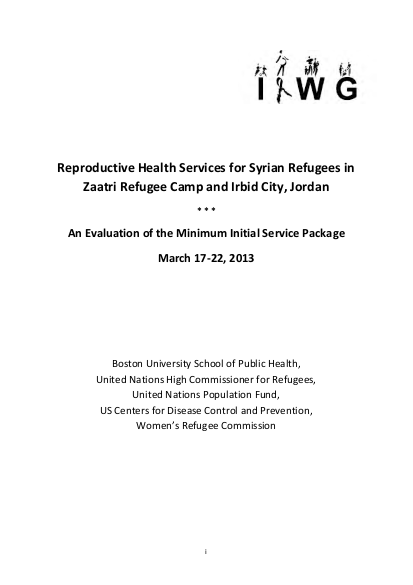
The Minimum Initial Service Package (MISP), a standard of care in humanitarian emergencies, is a coordinated set of priority activities designed to prevent excess newborn and maternal morbidity and mortality; reduce HIV transmission; prevent and manage the consequences of sexual violence; and plan for comprehensive RH services.
As part of the Global Evaluation of Reproductive Health in Crises for the Inter-Agency Working Group (IAWG) on Reproductive Health in Crises, representatives from Boston University School of Public Health, the US Centers for Disease Control and Prevention (CDC), United Nations Population Fund (UNFPA) and the Women’s Refugee Commission (WRC) conducted an evaluation of the MISP from March 17-22, 2013. The purpose of this study was to examine to what extent the MISP services were in place for Syrian refugees living in Jordan in order to improve the response and meet the RH needs of the refugees.